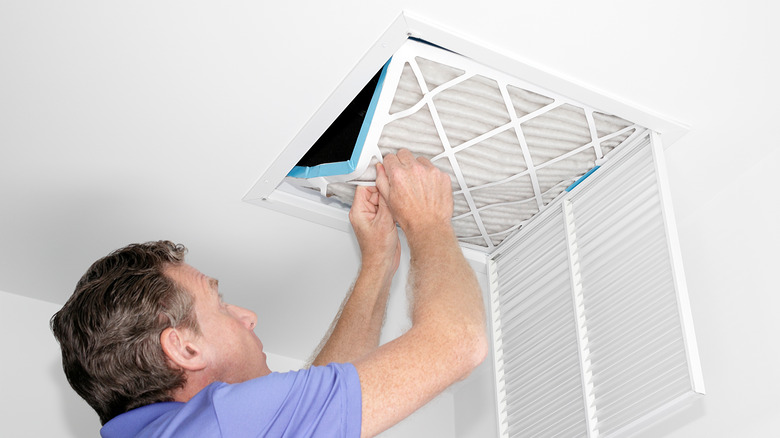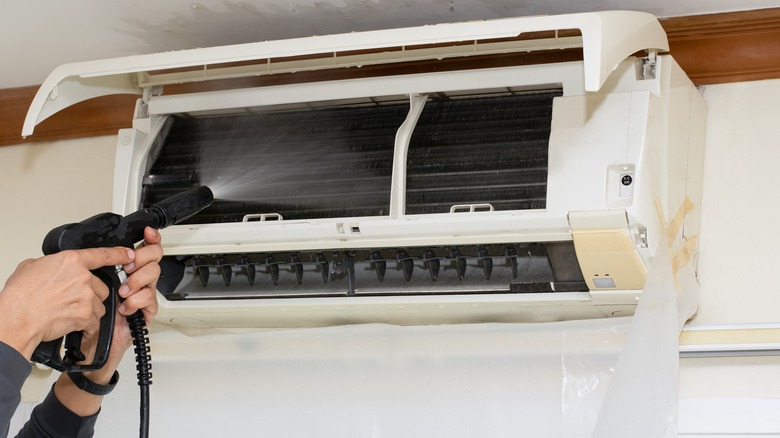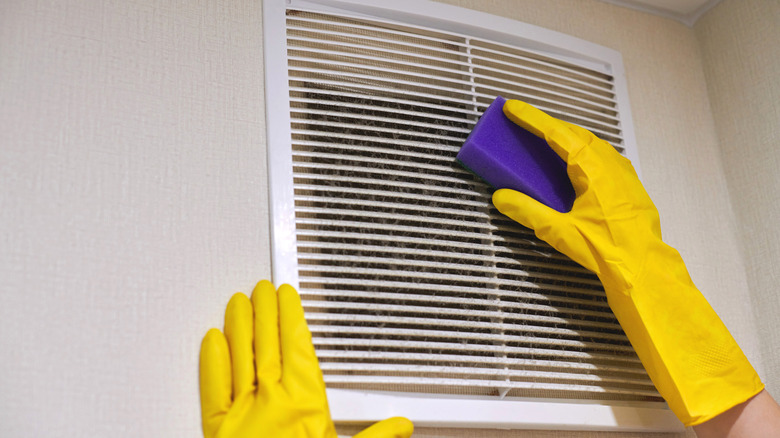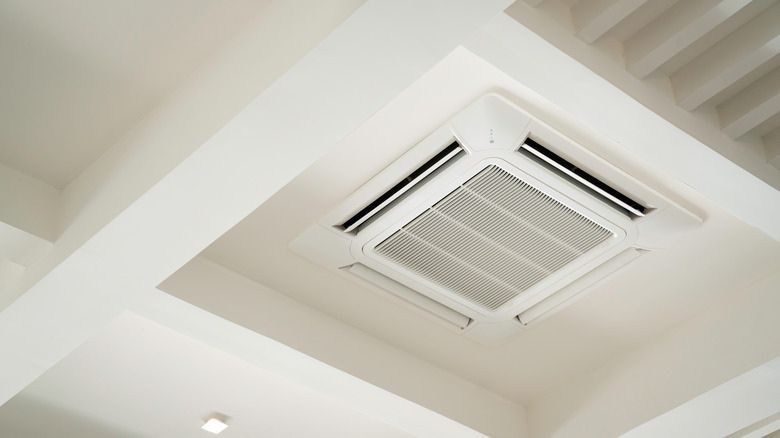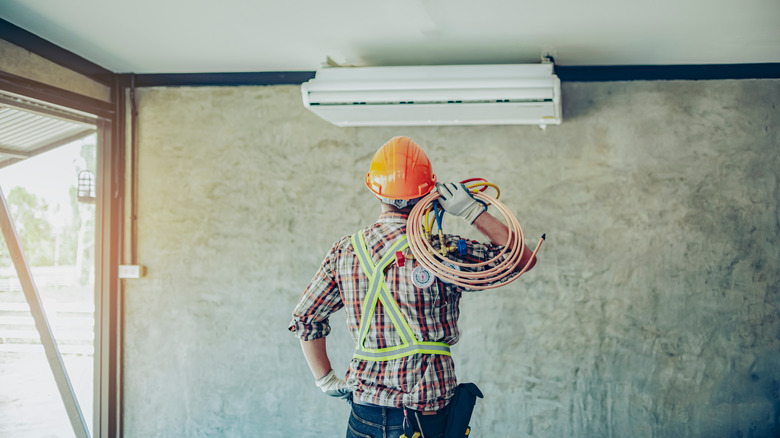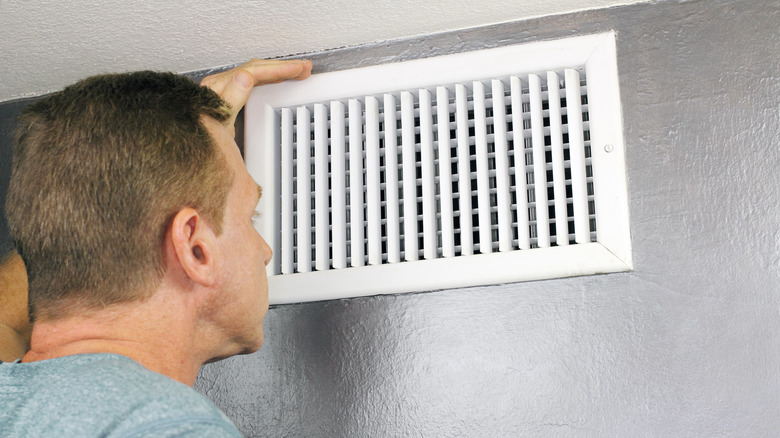Benefits Of Getting Your Ducts Cleaned Regularly
It's easy to forget about air ducts that are often hidden away from plain sight. Air duct cleaning, essentially, is the process of removing dust and debris from the supply and return ducts in our homes. These air pathways play an important role in making our lives comfortable at home. Air ducts are part of the HVAC system, and are responsible for circulating air to and from the different rooms in our homes for continuous comfort regardless of the season.
Air circulation happens continuously approximately five to seven times a day (via the National Air Duct Cleaners Association), moving back and forth from the HVAC system through the ducts into the house. With this in mind, you can appreciate the importance of having your ducts clean. There are plenty of benefits that come with air duct cleaning, but before discussing the benefits, first, let's have a look at how you would determine whether you need your ducts cleaned or not.
Do you need air duct cleaning?
Right off the bat, it's worth mentioning that air duct cleaning is often a subjective matter depending on whom you ask. While a section of homeowners believe that air duct cleaning is not necessary, a good number also believe cleaning is a necessary part of HVAC system maintenance. It's easy to dismiss the importance of air duct cleaning if no one in your household has sensitive allergic reactions to dust and other allergens. However, from basic knowledge, air ducts in your home are bound to get dusty or might be infested with rodents, therefore it makes complete sense why you should consider cleaning these air channels.
With that out of the way, some common telltale signs that indicate you might need to clean your air ducts include the presence of mold growth on the inside of the air ducts. Mold in the air ducts should be a cause for concern, as they do contaminate indoor air quality, which has plenty of adverse health effects, according to the U.S. Environmental Protection Agency. Other indications that you might need to get the ducts cleaned include vermin infestation, and also the presence of too much dust and debris. Now let's have a look at some of the benefits of getting your ducts cleaned.
Energy efficiency
If you notice an unusual increase in energy bills in your home, then your HVAC system might be to blame. Just like any other appliance or machine, the HVAC needs maintenance to perform at maximum efficiency. One of the maintenance care practices for your home's heating and cooling system is air duct cleaning. It goes without saying that after a while, the ductwork and register are bound to have buildup from spider webs, debris, or grime. Such buildup could restrict airflow over time, causing the HVAC system to work extra hard to circulate air to and from your house.
Removing such debris will mean that there is less friction in circulating air through the ducts; therefore, your HVAC system will work at normal capacity, saving you a great deal on energy bills. However, the U.S. Environmental Protection Agency recommends complete maintenance of the HVAC system components will not only improve energy efficiency but also keep the systems working for longer.
Improved air quality
A study published in Environmental Monitoring and Assessment mentions that indoor air quality is a matter of concern, especially if you spend most of your time inside. The air ducts in your home essentially determine the quality of the air you breathe. Dust, debris, and other unwanted substances accumulate over time and the ducts move and deliver the dust to the entire house. It gets even worse if you have pets in your home, as pet fur can often find its way into the ducts and accumulate, causing blockages.
Bringing in a professional crew to maintain your HVAC system and clean the air ducts sets the entire system up for optimal airflow. Proper cleaning ensures that ducts are free from mold, pet fur, and any possible vermin droppings, hence, improving the indoor air quality in your home. Even if no one in your household suffers from allergic reactions, clean air with no strange odor is pleasant and easier to breathe.
Fewer repairs
Scheduled repair of the ductwork around your house does more than keep dust away and improve the indoor air quality. Cleaning ducts also presents the opportunity for a technician to inspect the airway to fix any openings and gaps that develop over time. Such gaps in the air channel compromise the performance of the HVAC system. Dirt and debris on the ductwork result in unnecessary wear and tear to the entire heating and cooling system, causing frequent breakdowns.
Also, you need to know that duct cleaning tasks are not DIY projects. First off, air ducts are not the strongest of structures, and you don't want to risk any damage to the airway. Repairing air ducts can be quite costly, ranging between $200 and $800, depending on the current type of air duct (per Fixr). Also, you might not have the necessary tools and equipment, for instance, a high-powered vacuum and a rotary brush.
How often should you clean your ducts?
How frequently you should clean your air ducts is a subjective matter because of the different household dynamics. However, the National Air Duct Cleaners Association advises you should consider cleaning the air ducts in your home after every three to five years of service. It's important to highlight that you can increase the frequency of your duct cleaning schedule if you have pets that shed heavily.
Another factor that should determine the frequency of air duct cleaning in your home, is if you have residents within your household with severe allergic reactions that would suffer when the indoor air quality gets compromised. Most of the time, you would know if the ducts in your house are contaminated because of the foul odor. A moldy smell is often an early indication of a moisture problem in your air ducts that needs to be addressed immediately. A general rule of thumb is to only consider duct cleaning when there is visible evidence of debris and dust buildup.
